A GREEK’S GUIDE TO GREECE
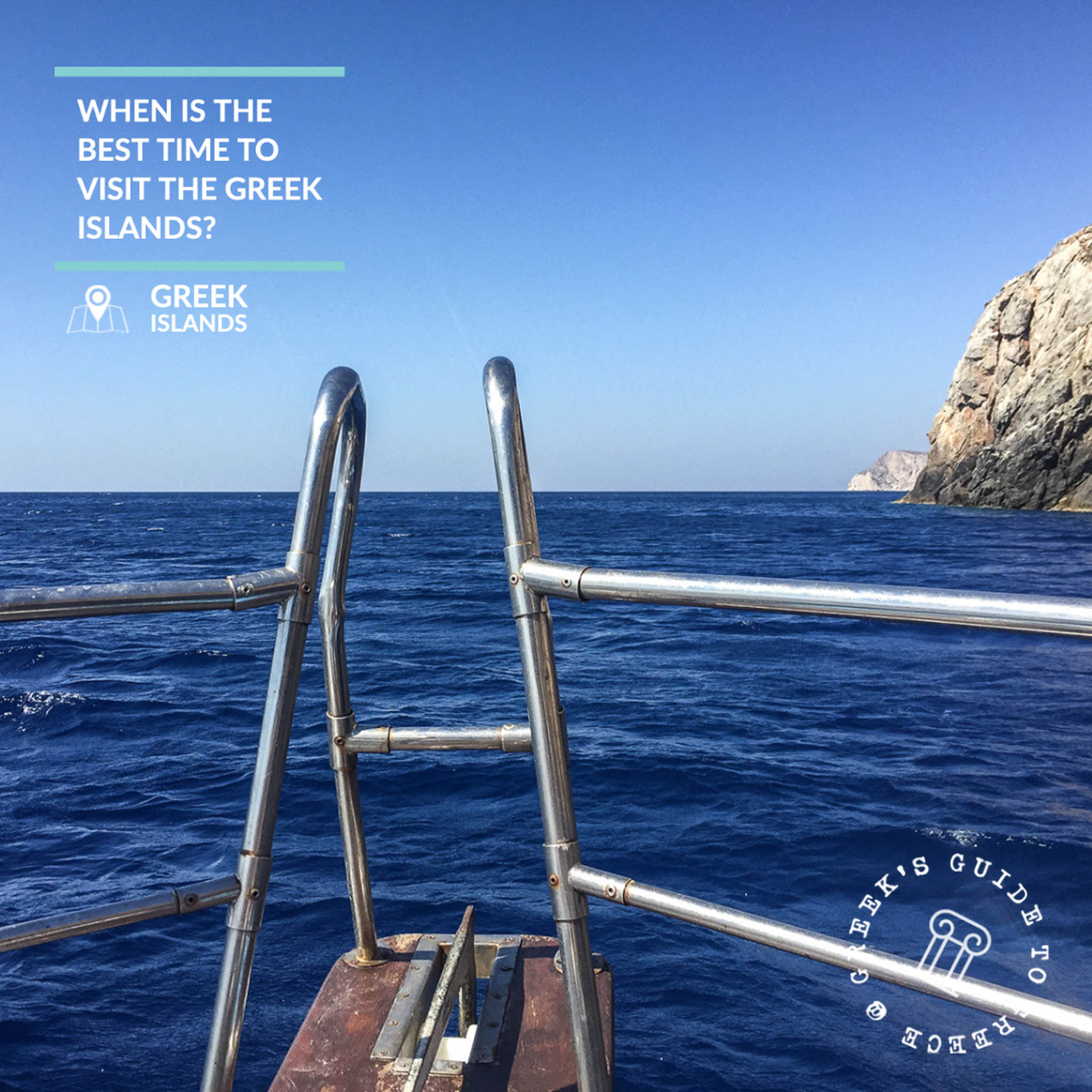
Dreaming or planning a trip to the Greek islands and wondering when is the best time to visit? You are in the right place! Let’s get into it!
GREEK ISLANDS CLIMATE: THE BASICS
Greece is a country of four seasons. However, the temperate Mediterranean climate ensures that one can experience winter, spring, summer and autumn without the fear of extreme weather phenomena.
Furthermore, you will most likely have at least a few sunny days in a week-long holiday even during autumn or winter. So, no matter what time of the year you visit, and no matter which area of Greece, don’t forget your sunglasses!
Throughout Greece, summer (June, July, August to mid-September) will be hot (around 25-30°C) sunny and predominantly dry. Some occasional summer thunderstorms are possible (maybe twice a month, usually in the evening, but could last for a week in June). Storms usually come after heatwaves (around or over 35°C) which are quite common in the mainland during July and August.
During shoulder season (April, May, late September & October), the weather is more unpredictable and variable. Temperature is around 20°C (around 17°C in early spring and late autumn and around 25°C as summer approaches). A couple of rainy days in a month are to be expected. Overall, shoulder season is when localised weather patterns become more prominent.
The Ionian islands (such as Corfu, Zante, Kefalonia) and Sporades (such as Skiathos) tend to get rainy in spring and autumn; that is why they are so green.
On the contrary, the barren landscape of the Cyclades (such as Mykonos, Santorini, Paros) can be attributed to strong winds and lack of rain throughout the year.
The eastern Aegean & Dodecanese islands (such as Samos, Kos, Rhodes) are somewhat in between of these two situations, depending on proximity to the mainland.
The islands of the Saronic (such as Hydra, Spetses) pretty much share the same climate as the coastal areas of the mainland. They have some rainy days in spring, autumn and winter and, of course, hot summers.
Lastly, Crete experiences a milder winter than the rest of Greece and a more prolonged summer season.
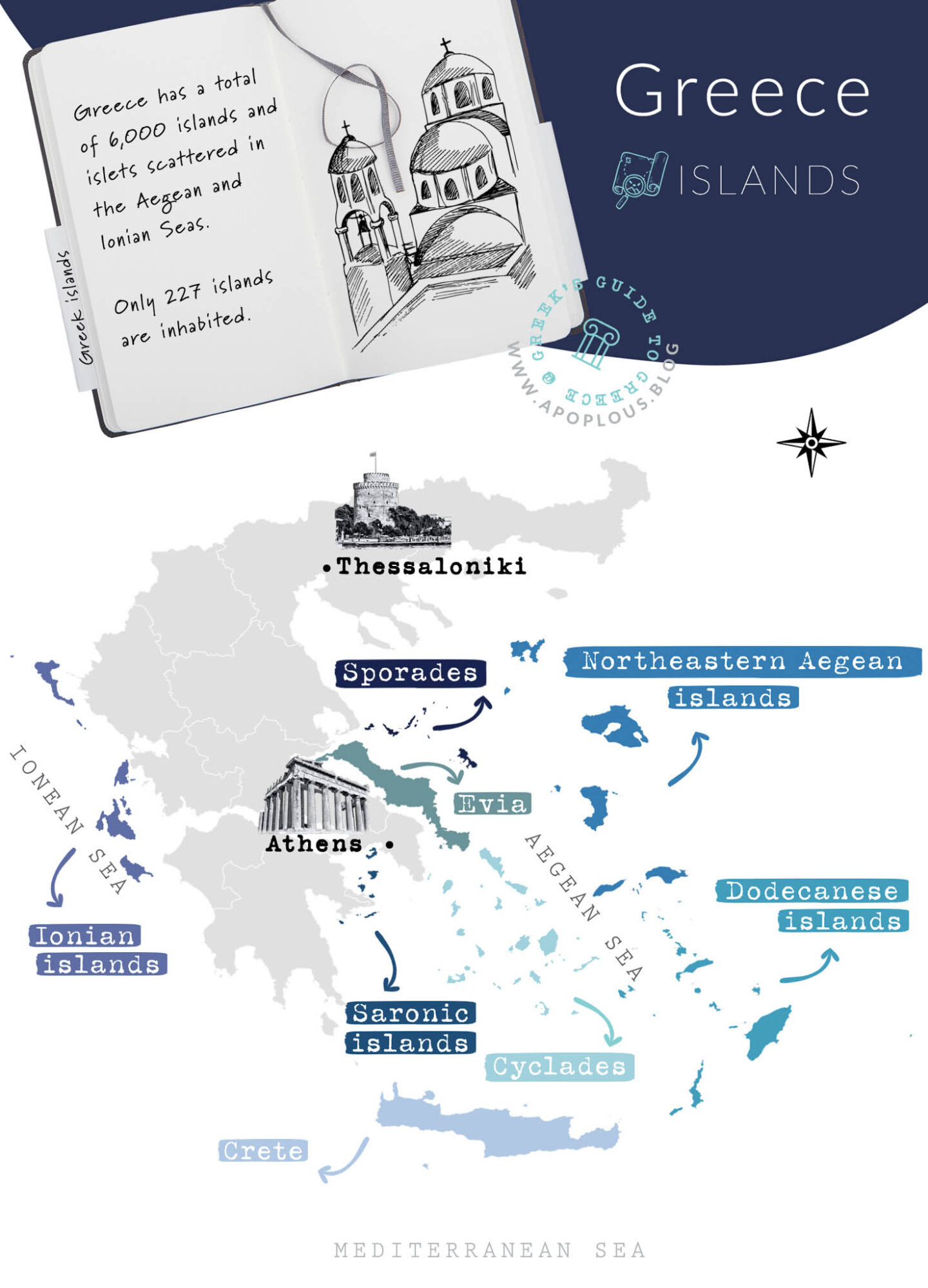
TOP TIP: You can check temperature averages and precipitation data per month and per region here. Another useful resource is this climatic atlas of Greece which comes from the national meteorological agency. If you browse the website a bit (an English version is also available), you can find plenty of information, from weather forecasts to maritime information.
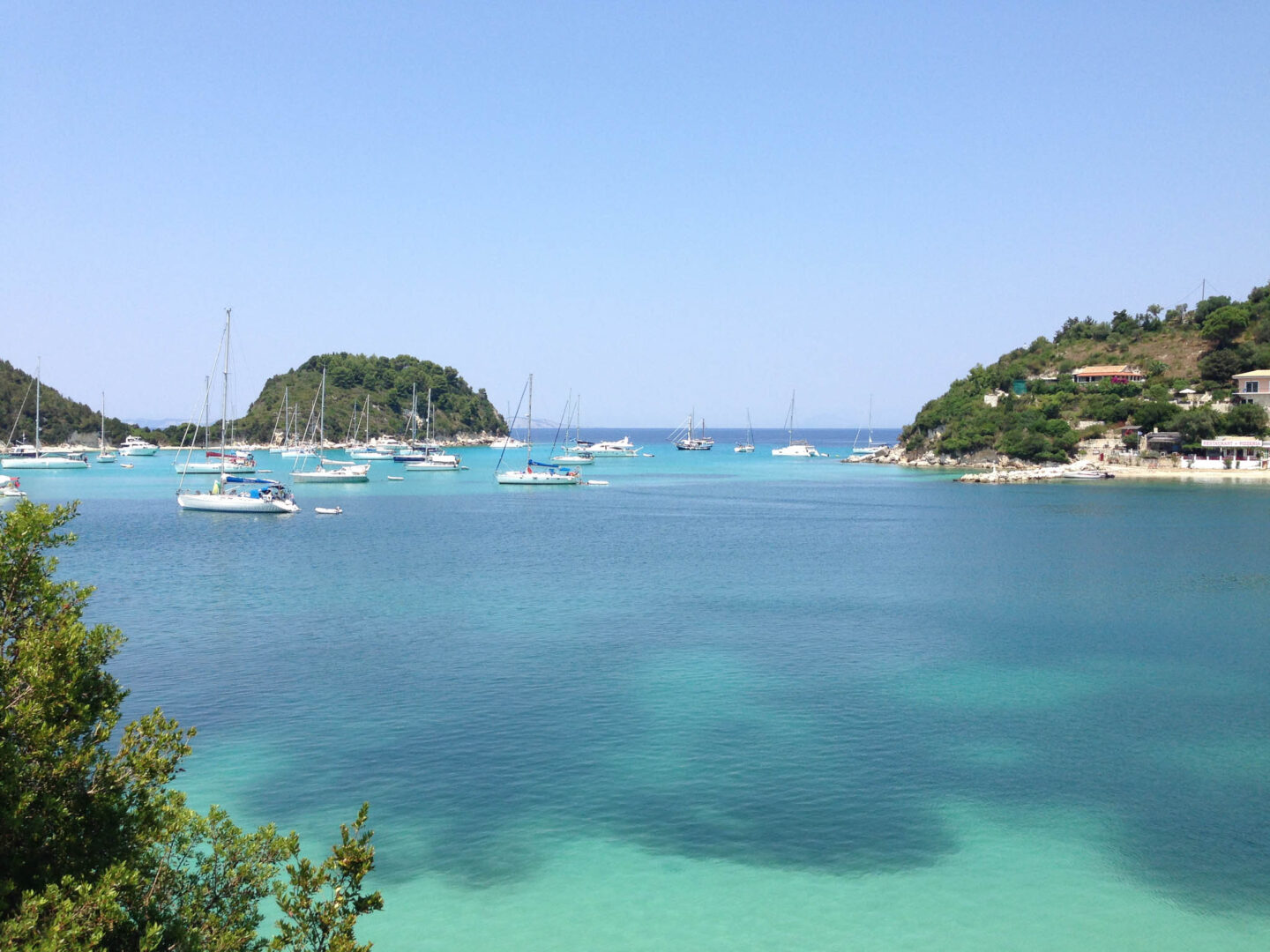
SO, WHEN IS THE BEST TIME TO VISIT THE GREEK ISLANDS?
Mid-May to end of September is the best time to visit any Greek island. Chances of precipitation are very low and even with mid-summer high temperatures (28-30°C) the weather is generally pleasant as it’s usually breezy, especially in the evenings. From the whole summer season, July and August will be the hottest months. However, the vast majority of accommodation options as well as pretty much all indoor areas will be air-conditioned.
Boat services and flights become much more frequent during June, July and August. However, note that July and August also comprise high season with increased hotel rates. Furthermore, the week before and after the 15th of August (Greek national holiday) is when most businesses close down for summer break. The islands and many coastal areas will probably be VERY busy as many Greeks are on annual leave.
THE FULL GREEK SUMMER EXPERIENCE: FROM MID-JUNE UNTIL MID-SEPTEMBER
Being Greek and living in London, I get asked a lot about when is the best time to visit the Greek islands. Interestingly, I do get some disappointed looks when I suggest visiting during high summer. I guess some people are nervous about the heat while others want to expand their summer well into October!
Anyway, let me explain: I only insist on high summer if you are keen on the full Greek summer experience. This entails spending your days on the beach, swimming and going on boat rides (in order to find more beaches). In other words, it’s all about embracing the hot weather. After all, you will be coming in and out of the water all the time!
# BEACH LIFE
While on the topic of beaches, let me clarify this. You do not need to be an Olympic swimmer nor a keen sailor or surf dude to enjoy the water. In my opinion, that is the beauty of the Greek summer. The sea is generally calm, clear, and usually not too cold. Most beaches are easily accessible by public boats, car or on foot. Many are also organised with umbrellas, sun loungers and a beach bar or taverna, so you can retreat to the shade easily.
Families with young or older children, students, young professionals, retirees; you will find almost everyone in most Greek beaches. A few exceptions to this would be: a beach with a really fancy beach bar, one where crazy parties are organised or one which is very hard to access. If you are unsure about the beach you are going, don’t be embarrassed to ask the locals! They will gladly give you a full report on the status of all nearby beaches and their recommendations!
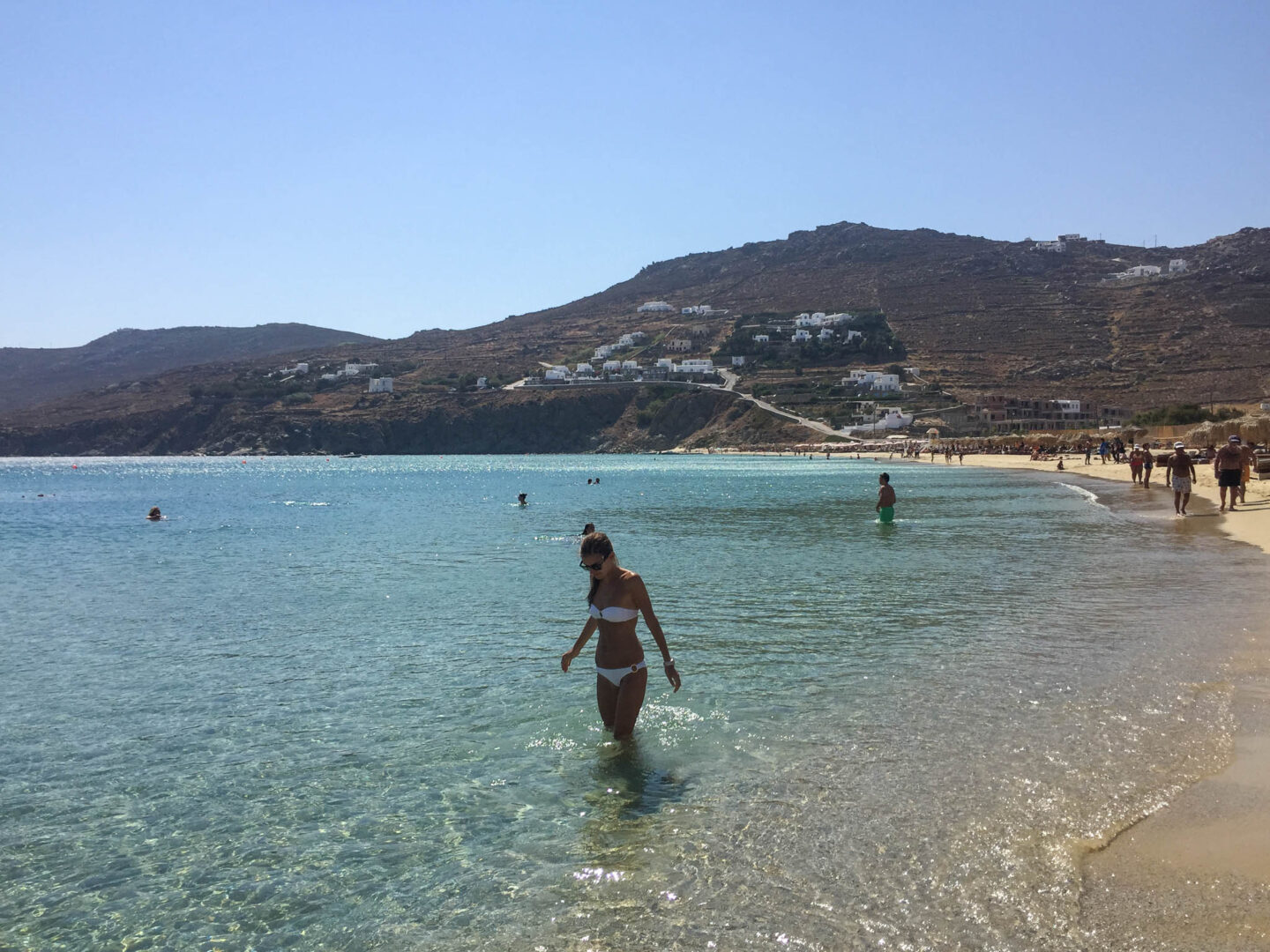
SHOULDER SEASON IN THE GREEK ISLANDS
Nevertheless, I am fully aware that not anyone is a keen beach goer. Nor do they want to spend a whole week on a sun lounger. You are a better person than I am. Happily, more and more islands now have plenty of activities to keep you occupied.
Most islands have beautiful hiking trails and offer horse-riding excursions, scuba-diving and yachting opportunities. Furthermore, there’s plenty of wine tours or visits to remote traditional villages and, of course, tours around archaeological sites. It goes without saying that most of these activities are worth doing when it is not blazing hot. And this opens you up to a fantastic holiday in April, May and early October.
Having said that many people say that the sea is super warm in October. Funnily, I have not found myself on a beach in October even when I lived in Greece; you may even get the whole beach to yourself…
Lastly, spring and autumn could be the perfect time if you are combining your Greek island holiday with a visit to one of the cities. They get VERY hot and stuffy in the summer. Naturally, shoulder season comes with the additional bonus of lower prices and lesser crowds.
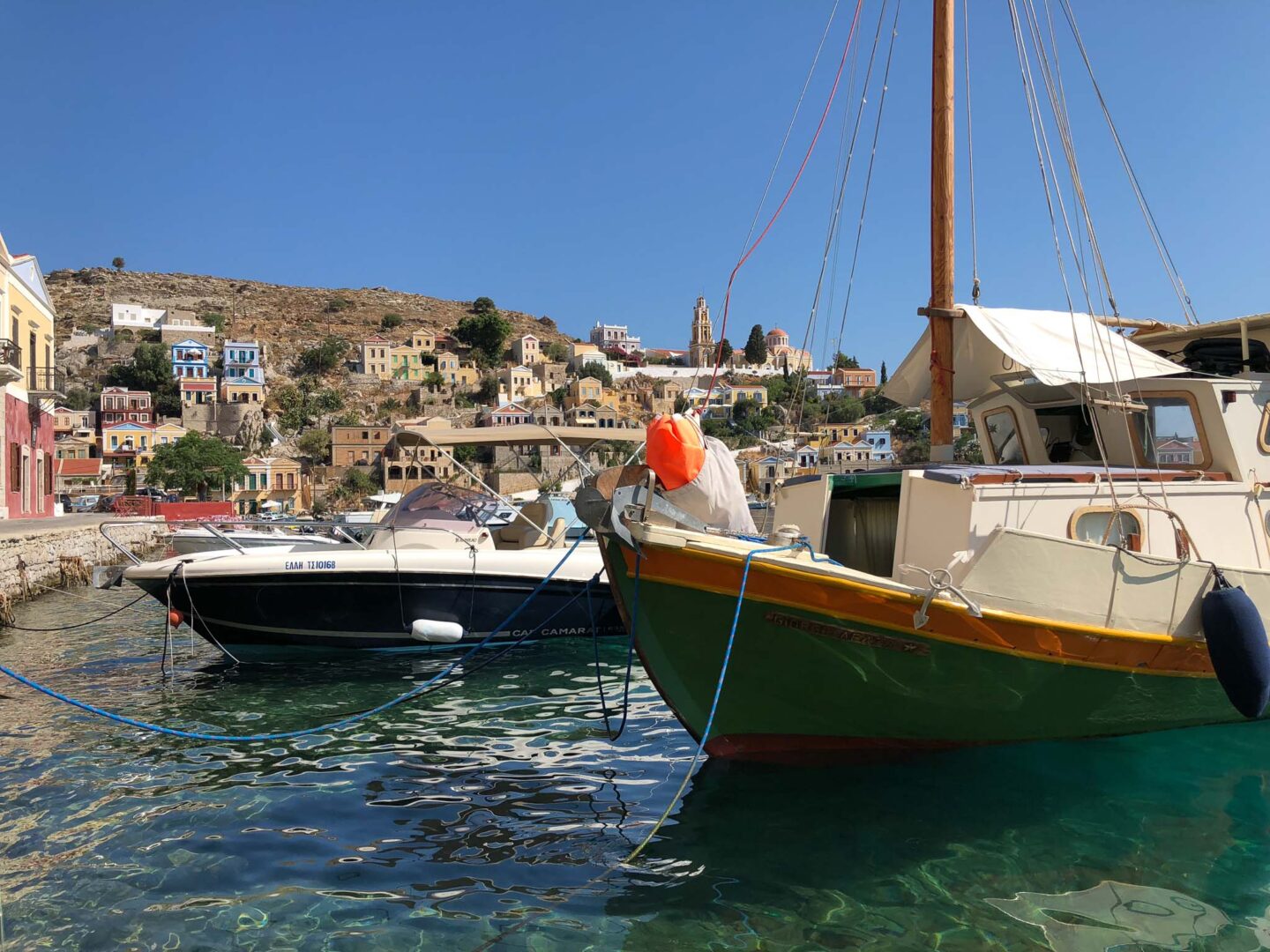
FINAL THOUGHTS
So, there you have it. Now that you know when is the best time to visit the Greek islands FOR YOU, let’s start planning your dream holiday! Still looking for that perfect Greek island? Browse my Greece Travel Guides as well as my post about Under-the-radar Greek islands you need to visit. Lastly, make sure to check out the rest of A Greek’s Guide to Greece for more ‘inside information’!
See you on the beach!
This is not a sponsored post & I am not affiliated with any of the hotels, restaurants or organisations mentioned.
A DEEP DIVE INTO GREECE
Looking for more travel guides for Greece? Or maybe just tips, inspiration and practical advice for effortless travel and authentic experiences? Hit the buttons below!
___

